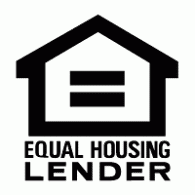Private Mortgage Insurance (PMI) can be the answer to your problem.
For people wanting to have a home, sometimes the 20% downpayment is one factor that prevents them from owning their dream home.
There are options for you if you don’t like to pay rent and wish to have your own property but don’t have enough for a 20% downpayment. That’s where Private Mortgage Insurance comes in.
What Is Private Mortgage Insurance (PMI)?
Private mortgage insurance (PMI) is an insurance type that a borrower buys. Lenders usually require it if the borrower puts down less than 20% of the property value.
When a borrower is asked to buy PMI, it means that the lender considers the risk profile of the mortgage as high risk. That happens because if the downpayment is less than 20% of the home’s purchase price, the loan-to-value (LTV) ratio of the mortgage will be over 80%. So, the higher the LTV ratio of your mortgage is, the more high risk you are as a borrower.
What You Need to Know About PMI
One thing that makes PMI different from other types of insurance is that PMI doesn’t directly benefit the buyer. PMI protects the lender’s investment even though it’s the borrower who pays for the insurance.
The advantage that a borrower can get from a PMI is that it makes owning a house faster. Purchasing a PMI will allow you to get financing even if your downpayment ranges from 5% to 19.99%.
How Much Does It Cost?
Depending on your insurance provider, annually, PMIs can cost from 0.25% to 2% of your loan balance. It depends on several factors like downpayment and mortgage, your credit score, and the loan term.
The more high risk of a borrower you are, the higher the premiums you’ll have to pay. Also, since your PMI depends on your downpayment and mortgage, you’ll pay more if you borrow more.
Why Should I Get a PMI?
You’re probably wondering why you should get an insurance policy that you’ll pay every month and protects your lender’s investment instead of yours. Although getting a PMI is an addition to your monthly expenses, it can help you save money in the long run by helping you get your own place faster.
That means you won’t have to pay rent anymore. You also won’t have to wait anymore to get your dream home because you’re still saving up for a huge downpayment. In real estate, the more you wait, the more you miss out due to property appreciation.
How Long Should I Pay for a PMI?
Another advantage of PMI is that you don’t have to pay for it for as long as you pay your mortgage. The federal Homeowners Protection Act requires lenders to cancel a PMI once the LTV ratio drops to 78%, as long as your mortgage payments are up to date. You can also request for it to be removed once your LTV ratio goes below 80%.
Paying for private mortgage insurance every month in addition to your monthly expenses can make some borrowers hesitant to purchase one. However, the advantage of having your own home and not having to pay rent is worth it. Also, you won’t have to wait for a long time and save up for your dream home as market prices continue to go up. If you look at it from a long-term perspective, you’ll see that it benefits you more.
For more information, contact us now.





